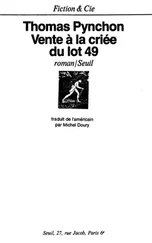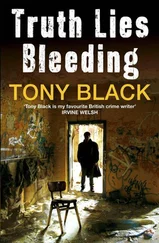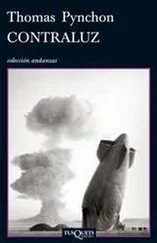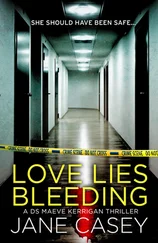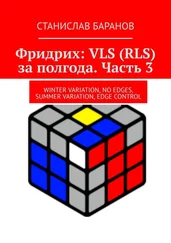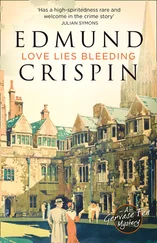Automatic-rifle fire every night, irregular pulses of flame-colored light above the treelines. Villagers began leaving. One morning Windust found the office he’d been working out of abandoned and cleared of everything sensitive. No sign of any of the neoliberal scum he’d oozed into town with. Perhaps owing to the appearance overnight of ill-disposed country folk carrying machetes. Somebody had written SALSIPUEDES MOTHERFUCKERS in lipstick on a cubicle wall. A 55-gallon oil drum out in back full of ashes and charred paperwork was still seeping smoke. Not a yanqui in sight, let alone the Israeli and Taiwanese mercs they’d been coordinating with, all of them suddenly gathered back into the Invisible. “He gave me about a minute to pack a bag. The blouse I wore at our wedding, some family photographs, a sock with a roll of quetzals in it, a little SIG Sauer .22 handgun he was never comfortable with and insisted I take.”
On the map the Mexican border wasn’t far, but even though they first headed down to the coast, away from the mountains, the terrain was demanding and there were obstacles—army patrols, blood-drinking Kaibil special ops, guerrilleros who would shoot a gringo on sight. At any moment Windust was apt to mutter, “Spot of bother here,” and they’d have to hide. It took days, but finally he got them safely into Mexico. They picked up the highway at Tapachula and rode buses north. One morning at the bus station in Oaxaca, they were sitting out under a canopy of poles and palm thatchwork, and Windust suddenly was down on one knee offering Xiomara a ring, with the biggest diamond she’d ever seen.
“What’s this?”
“I forgot to give you an engagement ring.”
She tried it on, it didn’t fit. “It’s OK,” he said, “When you get to D.F., I want you to sell it,” and it wasn’t till then, that “you” instead of “we,” that she understood he was leaving. He kissed her good-bye, and turning away from maybe the last merciful act in his résumé, moseyed on out of the bus station. By the time she thought to get up and run after him, he’d vanished down the hard roads and into the heavy weather of a northern destiny she’d thought she could protect him from.
“Foolish little girl. His agency took care of the annulment, found me a job in an office out on Insurgentes Sur, after a while I was on my own, there was no more interest or profit in tracking me, I found myself working more and more with exile groups and reconciliation committees, Huehuetenango was still down there, the war was never going to go away, it was like the old Mexican joke, de Guatemala a Guatepeor. ”
They’ve walked down to Fulton Landing. Manhattan so close, so clear today, yet back on 11 September the river was an all but metaphysical barrier. Those who witnessed the event from over here watched, from a place of safety they no longer believed in, the horror of the day, watched the legions of traumatized souls coming across the bridge, dust-covered, smelling like demolition and smoke and death, vacant-eyed, in flight, in shock. While the terminal plume ascended.
“Do you mind if we walk back across the bridge, over to Ground Zero?”
Sure. Just another visitor to the Apple here, another one of those obligatory stops. Or was this the idea all along, and Maxine’s being played here, like an original-cast vinyl LP? “That ‘we’ again, Xiomara.”
“You’ve never been there?”
“Not since it happened. Made a point of avoiding it, in fact. You gonna report me to the patriotism police now?”
“It’s me. I’ve gotten obsessed.”
They’re up on the bridge again, as close to free as the city ever allows you to be, between conditions, an edged wind off the harbor announcing something dark now hovering out over Jersey, not the night, not yet, something else, on the way in, being drawn as if by the vacuum in real-estate history where the Trade Center used to stand, bringing optical tricks, a sorrowful light.
They glide like attendants toward the room of a waker from civic nightmare who will not be comforted. Open-top tour buses cruise by carrying visitors in matching plastic ponchos with the tour-company logo. At Church and Fulton, there’s a viewing platform, allowing civilians to look in past the chain-link and barricades to where dump trucks and cranes and loaders are busy reducing a pile of wreckage that still reaches ten or twelve stories high, to gaze into what should be the aura surrounding a holy place but isn’t. Cops with bullhorns are managing the foot traffic. Buildings nearby, damaged but standing, some draped like mourners in black façade netting, one with a huge American flag attached across the top stories, gather in silent witness, glassless window-sockets dark and staring. There are vendors selling T-shirts, paperweights, key chains, mouse pads, coffee mugs.
Maxine and Xiomara stand for a while looking in. “It was never the Statue of Liberty,” sez Maxine, “never a Beloved American Landmark, but it was pure geometry. Points for that. And then they blew it to pixels.”
And I know of a place, she’s careful not to add, where you dowse across an empty screen, clicking on tiny invisible links, and there’s something waiting out there, latent, maybe it’s geometric, maybe begging like geometry to be contradicted in some equally terrible way, maybe a sacred city all in pixels waiting to be reassembled, as if disasters could be run in reverse, the towers rise out of black ruin, the bits and pieces and lives, no matter how finely vaporized, become whole again…
“Hell doesn’t have to be underground,” Xiomara looking up at the vanished memory of what had stood there, “Hell can be in the sky.”
“And Windust—”
“Dotty said he came here more than once after 11 September, haunting the site. Unfinished business, he told her. But I don’t think his spirit is here. I think he’s down in Xibalba, reunited with his evil twin.”
The condemned ghost structures around them seem to draw together, as if conferring. Some patrolman from the karmic police is saying move along folks, it’s over, nothing to see here. Xiomara takes Maxine’s arm, and they glide off into a premonitory spritzing of rain, a metropolis swept by twilight.
Later, back in the apartment, in a widowlike observance, Maxine finds a moment alone and switches off the lights, takes the envelope of cash, and snorts the last vestiges of his punk-rock cologne, trying to summon back something as invisible and weightless and inaccountable as his spirit…
Which is down in the Mayan underworld now, wandering a deathscape of hungry, infected, shape-shifting, lethally insane Mayan basketball fans. Like Boston Garden, only different.
And later, next to snoring Horst, beneath the pale ceiling, city light diffusing through the blinds, just before drifting downward into REM, good night. Good night, Nick.
There is a particular weirdness to be found on weekends in the evening in NYC health and fitness clubs, especially when economic times are sluggish. Unable anymore to bring herself to swim in The Deseret pool, which she believes to be cursed, Maxine has joined her sister Brooke’s state-of-the-art health club Megareps around the corner but isn’t quite used yet to this nightly spectacle of yups on treadmills, plodding to nowhere while watching CNN or the sports channels, laid-off dotcommers who aren’t at strip clubs or absorbed into massively multiplayer online games, all running, rowing, lifting weights, mingling with body-image obsessives, folks recuperating from dating disasters, others desperate enough tonight actually to be looking for company here instead of in bars. Worse, hanging around the snack section, which is where Maxine, coming in out of the strange kind of late-winter rain that you can hear rattling lightly off your umbrella or raincoat but when you look, nothing is getting wet, finds March Kelleher, busy on her laptop, surrounded by muffin debris and a number of paper coffee cups she’s using, much to the annoyance of the rest of the room, for ashtrays.
Читать дальше

